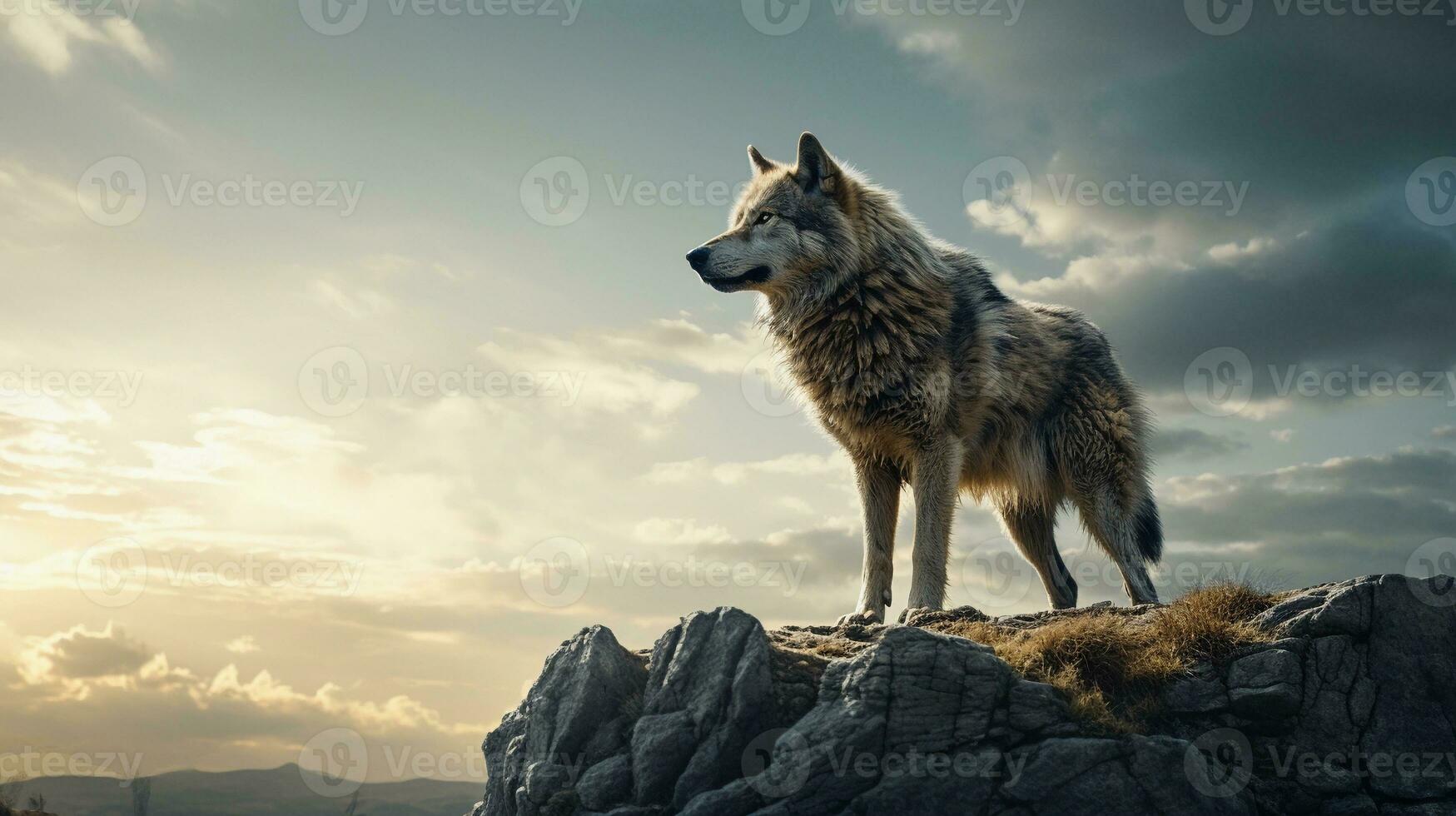Why The Omega Wolf is Always Found Wanting
The Role of the Omega Wolf
 In the intricate social hierarchy of a wolf pack, much attention is often given to the alpha—the leader, the dominant force guiding the group. However, nestled at the opposite end of the spectrum lies the omega wolf, a figure often misunderstood and undervalued. The omega plays a crucial, albeit complex role within the pack's dynamics, one that is both essential and paradoxical.
In the intricate social hierarchy of a wolf pack, much attention is often given to the alpha—the leader, the dominant force guiding the group. However, nestled at the opposite end of the spectrum lies the omega wolf, a figure often misunderstood and undervalued. The omega plays a crucial, albeit complex role within the pack's dynamics, one that is both essential and paradoxical.
Despite its necessity, the omega wolf is frequently found wanting, existing in a state of constant deficiency compared to its counterparts.
This article delves into the reasons behind the omega wolf’s perpetual state of being 'lesser,' exploring the psychological, social, and survival challenges that define this enigmatic creature.
The Social Hierarchy: A Life on the Margins
The social structure of a wolf pack is a finely tuned system where each member has a specific role, and this hierarchy is key to the pack's survival. The alpha wolves are the leaders, commanding respect and authority, while the beta wolves serve as the second-in-command, maintaining order and assisting the alphas.
At the bottom of this structure lies the omega wolf, often serving as the scapegoat or the lowest ranking member in the social ladder.
The omega’s position is not one of choice but rather one of circumstance. It is a role that is thrust upon a wolf, often due to a combination of submissive behavior, physical weakness, or an inability to assert dominance. The omega wolf is frequently subjected to the aggression of higher-ranking members and must navigate a life of constant subordination.
This existence on the margins creates a cycle of low self-esteem and perpetual submission, reinforcing the omega's place at the bottom and making it difficult to escape this role.
The social pressure faced by the omega wolf is immense, leading to a life marked by psychological stress and a perpetual sense of inadequacy.
Psychological Impacts: The Weight of Being Last
Living as the omega wolf takes a significant toll on its mental health. Constantly being the target of aggression from other pack members creates an environment of chronic stress. This stress manifests in various ways, from anxiety and depression-like behaviors to a general lack of confidence that further entrenches the omega’s lowly status.
The omega wolf's psyche is a reflection of its social environment. The constant reinforcement of its subordinate role leads to learned helplessness—a state where the omega no longer attempts to change its situation because it believes it is powerless to do so. This mental state is not just a result of physical interactions but also of the social cues that constantly remind the omega of its place.
The psychological burden of always being last, of always being found wanting, creates a feedback loop where the omega wolf’s mental state contributes to its continued subordination.
Survival Challenges: The Struggle for Resources
The omega wolf’s position in the hierarchy also has direct implications for its survival. Being at the bottom means last access to food and resources, which in the harsh realities of the wild, can be a matter of life and death. When a pack makes a kill, the alphas and betas eat first, leaving the omega to scavenge what remains.
This often results in the omega receiving less nutrition, which can lead to physical weakness and illness, further perpetuating its lowly status.
In addition to limited access to food, the omega wolf is often marginalized during other essential activities, such as mating and shelter selection. The constant struggle for survival reinforces the omega’s subordinate position, making it difficult for these wolves to break free from their lowly role. The omega wolf's struggle is not just a social one but a fight for its very existence, where the odds are continually stacked against it.
The Paradox of Necessity: An Indispensable Role
Despite the challenges and hardships, the omega wolf plays an indispensable role within the pack. The omega’s presence helps to diffuse tension within the group, often serving as a stress relief valve by absorbing the aggression and frustration of higher-ranking wolves.
This role, while seemingly thankless, is crucial for maintaining harmony within the pack. The omega wolf's willingness to accept its place and absorb the negative energies of the group ensures that the alphas and betas can function without constant internal conflict.
Moreover, the omega’s role is a testament to the complex social structures of wolves, where even the lowest-ranking member serves a purpose. The omega wolf, through its very deficiencies, contributes to the overall stability of the pack. This paradoxical necessity highlights the intricate balance of power and submission that governs wolf society.
Conclusion
The life of an omega wolf is a profound study in contrasts—essential yet marginalized, necessary yet perpetually wanting. This role, defined by social subordination, psychological stress, and survival challenges, underscores the harsh realities of wolf pack dynamics. While the omega wolf may always be found wanting in comparison to its pack members, its existence is a critical component of the pack's social fabric.
Understanding the omega wolf’s role offers valuable insights into the complexities of social hierarchies, both in the animal kingdom and, by extension, in human societies. The omega’s plight is a reminder that even those at the bottom have a role to play, and their struggles, while often overlooked, are integral to the survival and cohesion of the group as a whole.
References
- National Geographic, "The Social Structure of Wolf Packs," National Geographic Article.
- Nature.com, "Survival Strategies of Omega Wolves," Nature Research.
- Journal of Ethology, "The Role of the Omega in Pack Dynamics," Journal of Ethology.





































